Voices from Okinawa
May 25, 2015 Ryukyu Shimpo special edition of the Gov. Onaga’s visit to the U.S.
One in four people killed in the Battle of Okinawa
 Chihiro Uchimura, director of Fukutsu-Kan, museum of Kamejiro Senaga and the people’s history
Chihiro Uchimura, director of Fukutsu-Kan, museum of Kamejiro Senaga and the people’s history
I am so glad that Governor Onaga is expressing his objection to the new base being built in Henoko based on the historical situation forced upon Okinawa. One in four inhabitants of Okinawa prefecture were killed in the battle of Okinawa in World War II. After the war, Okinawa was separated from Japan and placed under American military rule for 17 years. During that time quite a few residents were killed in U.S. military aircraft accidents, as well as raped by military personnel. Every time people in Okinawa were treated unfairly and denied any shred of democracy, we united and were victorious. Even after Okinawa was returned to Japan in 1972, we keep suffering due do the base problems. In the U.S. there must be a lot of people who don’t even know where Okinawa is, but I believe when Americans hear about the history of Okinawa, the present situation in Henoko, and the opposition of the Okinawan people toward the new base, they will have no choice but to take action.
We want an Okinawa where women and children can live without fear
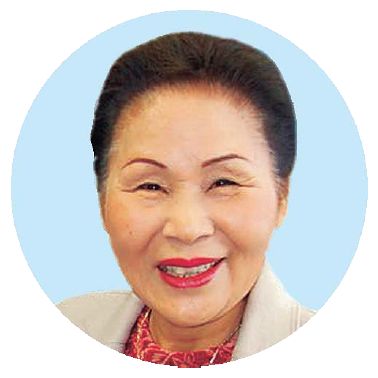 Kiku Taira, chair of the Okinawa Prefecture Women’s Association
Kiku Taira, chair of the Okinawa Prefecture Women’s Association
The people of Okinawa are strongly opposed to the construction of a new base. We hope that Governor Takeshi Onaga will convey our feelings strongly to the U.S. government during his visit to the U.S. We also hope U.S. citizens learn about Okinawa. And we want the Japanese government not to just give us explanations that are only words, but to actually consider the situation. Removal of Futenma Air Station, which is said to be the most dangerous base in the world, is our wish. The U.S. and Japanese governments have forced Okinawa to sacrifice itself for the sake of the U.S. bases for 70 years since the end of the war. We want to ask why only Okinawa bears the burden of so many bases for the peace of all of Japan. We also worry that a dangerous airplane is flying in the skies over Okinawa. This aircraft just had an accident in Hawaii in May. We can’t feel peace of mind living under the skies where that aircrafts flies. We want an Okinawa where women and children live without any fear. We hope that Governor Onaga conveys our will to the U.S. government.
Governor intends to prevent construction of a new base
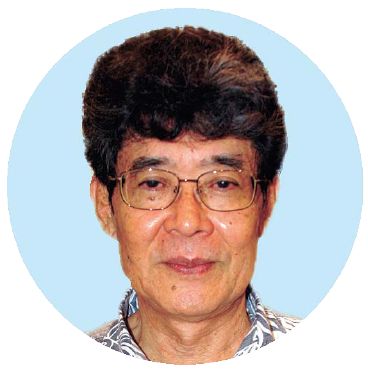 Eiki Matayoshi, Akutagawa Prize-winning writer
Eiki Matayoshi, Akutagawa Prize-winning writer
In the Ryukyu Kingdom, the “omotenashi” spirit of hospitality is strong. However, when someone abuses this hospitality and takes advantage of it, we must give a strong warning to them not to disrespect us. We say “usheruna” in the Ryukyu language, which means, “Don’t treat us like fools.” I hope that Governor Onaga gives a firm warning to the U.S. government. In the past, strong countries such as the United Kingdom and the Netherlands treated the people in their colonies as resources. There may be a fundamental belief in the governments of both Japan and the United States that Okinawa just exists for their own profit. Governor Onaga is serious about preventing the construction of the new base. People in Okinawa are serious too. I hope Governor Onaga conveys Okinawan sentiment to U.S. government and makes himself heard.
A new base will increase risks to businesses
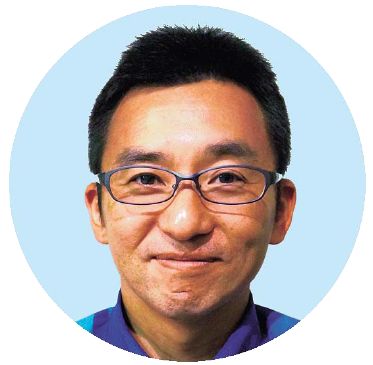 Shuji Suzuki, president of Yuimaru Okinawa Inc.
Shuji Suzuki, president of Yuimaru Okinawa Inc.
We do not need U.S. military bases anymore in Okinawa. After 9/11, it is said that Okinawa has become dangerous because it contains U.S. bases. Earnings from our businesses have decreased, as well as the number of tourists. This proves that tourism and militarism cannot coexist. We already have risks that make it difficult for us to be a popular island for tourism. Constructing U.S. bases only increases safety risks. In Okinawa, companies need to get together and express our opinions. Many Okinawan people support Governor Onaga.
Public opinion polls show that more than half of Japanese citizens oppose the construction of a new U.S. base. We want the U.S. to listen to the people, not only to the Prime Minister.
Governor’s visit to the U.S. will create a new development
 Yoshimi Teruya, former chairman of the Okinawa Prefectural Union of Chamber of Commerce and co-leader of the executive committee
Yoshimi Teruya, former chairman of the Okinawa Prefectural Union of Chamber of Commerce and co-leader of the executive committee
I have reiterated that the Japanese media is largely responsible for the fact that Japanese citizens do not understand the issues in Okinawa. Recent polls and surveys have shown that opposition to relocating the U.S. military base to Henoko is increasing. Governor Onaga has played a role in bringing about this shift. Since his inauguration, he has stood firm in his policy of not allowing new U.S. bases to be constructed. He will visit the U.S. and share this message, hoping to draw the attention of the U.S. media in an attempt to spread knowledge of this issue to American citizens.
Change Japan through the United States
 Seigen Miyasato, political scholar and advisor to the Okinawa External Affairs Study Group
Seigen Miyasato, political scholar and advisor to the Okinawa External Affairs Study Group
Okinawa Governor Takeshi Onaga should actively convey Okinawan sentiment through a variety of channels, including the U.S. Congress and government, to appeal to public opinion.
The Japanese government’s argument that there is no alternative but relocation to Henoko in order to achieve the return of the Marine Corps Air Station Futenma is just an excuse. The Japanese government is easy to work with for the U.S. government because the Japanese government listens to whatever the U.S. government says. Japan needs to change by speaking up to the U.S. The U.S. will not take action unless Japan does. It makes perfect sense for the governor of Okinawa to use history as a basis on which to condemn the overwhelming burden of U.S. bases in Okinawa.
Japan sacrificed Okinawa in order to sign the U.S.-Japan Security Treaty. We must express the same idea in a straightforward manner over and over again as many times as necessary.
Onaga should confidently voice objection to U.S. base
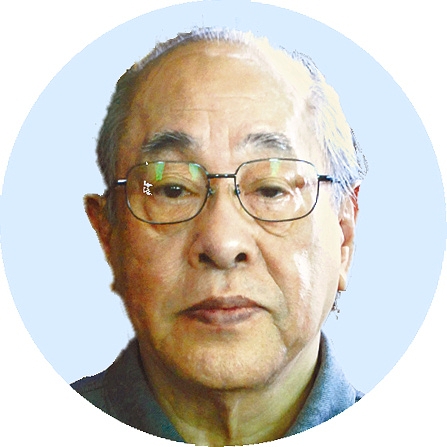 Masanori Yoshimoto, former Vice Governor
Masanori Yoshimoto, former Vice Governor
The former Ota administration of Okinawa prefecture also wanted to establish an office in Washington, but this idea was not realized because the prefectural assembly did not accept it. The role of a local office is huge, and the exchange of information that has occurred there so far will be beneficial for Onaga’s U.S. visit. Additionally, support from both conservatives and progressives, as well as from the business world, played a big role in the emergence of Governor Onaga. Governor Onaga should be confident as a representative of Okinawa as a whole. He should make clear that this problem cannot be resolved through negotiations with the Japanese government, and he should advocate that the Marine Corps Air Station Futenma needs to be shut down, and that building a new base in Henoko is not an option. Furthermore, he should meet with intellectuals to raise interest regarding the Okinawa issue in the U.S.
Uchinaguchi and rock-paper-scissors
I want Governor Onaga to tell Obama “Uchinanchu ushete naibirando (Don’t look down on Okinawan people)”. He spoke these words in Okinawan language at a recent prefectural rally. It is a mark of distinction that Onaga speaks the Okinawan language, so I think if he uses these words he will attract more attention to his cause, even if the words are rare and unfamiliar to most people. These words will trigger emotions. The representatives of the 47 prefectures in Japan should decide on an alternative relocation site for the Futenma air base by playing rock-paper-scissors. If they did that, the whole nation would think of this problem as their own problem. This would also draw attention to Okinawa.
Speak directly to people in the U.S.
 Mitsuko Toumon, former Okinawa City Mayor
Mitsuko Toumon, former Okinawa City Mayor
Governor Onaga is doing very well after being elected. There is a lot of popular support for Onaga among Okinawan citizens, who appreciate his efforts to shape Okinawa’s future for the better and voice their opposition to the Henoko base.
The American public remains largely ignorant about Okinawa, but there are people within U.S. think tanks and government who understand and sympathize with Okinawa. To inform more people about Okinawa, and increase their willingness to understand, it is important that Onaga himself goes to the U.S. and speaks clearly and directly about what Okinawan citizens think. In the U.S., if you do not convey things clearly, people will not understand what you are trying to say. So I want Onaga to speak as directly to people in the U.S. as he has to the Japanese government.
Protest in Henoko sends message of peace to neighboring countries
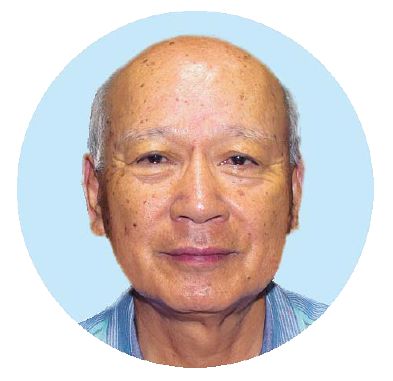 Yotake Kedashiro, chair of the Senkaku Islands Missing-War-Bereaved Association
Yotake Kedashiro, chair of the Senkaku Islands Missing-War-Bereaved Association
The Okinawan people’s struggle against the Futenma relocation plan and the landfill works in Henoko is one for sovereignty and democracy. About 35,000 people clearly showed their opposition to the relocation at a rally held recently. Some people have accepted the U.S. base against their will. The governments of Japan and the United States may lose support if they go ahead with the Henoko relocation. We will lose our dignity if we will allow the new base to be built. We would like Governor Onaga to bring his strong message to the United States. Some people think the relocation plan is necessary because China poses a threat. However, it is unrealistic to expect armed conflict will break out near the Senkaku Islands. The Okinawan people have chosen a peaceful solution and are sending a clear message to neighboring countries that they want to ease tensions by reducing the military presence.
US government is the real stakeholder in this issue
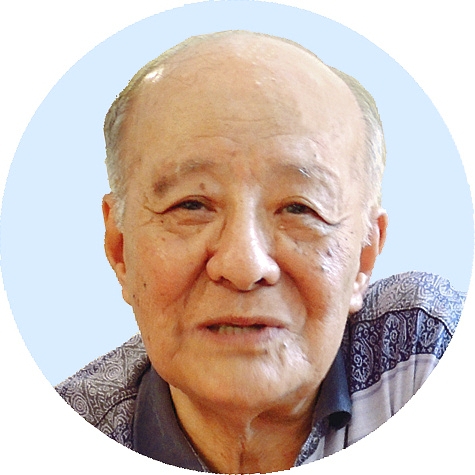 Mikio Higa, former vice governor of the Okinawa Prefectural Government
Mikio Higa, former vice governor of the Okinawa Prefectural Government
I expect Governor Onaga to adamantly oppose this discrimination against the Okinawan people who have been forced to sacrifice so much. Building a new base at Henoko makes no sense from a military, a business, a societal, a cultural or an environmental viewpoint. The vast majority of Okinawan people are opposed to the Henoko relocation. The governor should urge the U.S. government to abandon its plan. In addition, the governor should tell the U.S. government that it cannot maintain its military presence surrounded by hostility. The governor should tell them that the U.S. government is the real stakeholder in this issue. The U.S. government should respond to the request from the governor.
Governor’s words have more impact
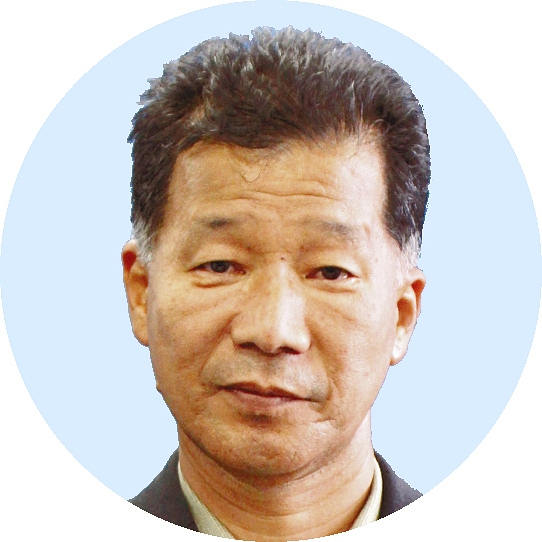 Tadashi Oshiro, the president of Itosan
Tadashi Oshiro, the president of Itosan
Governor Onaga’s visit to the United States has an important significance for Okinawa. Words from the governor’s own mouth will have more impact in the United States than anything we can say. The U.S. military bases have been concentrated in Okinawa since the war ended. I strongly request the governor to tell U.S. Congress members and ordinary U.S. citizens about the current situation in Okinawa. Because of U.S. military training, access to the sea is restricted in many areas, just as it is restricted to many places on land. We would like him to argue for a reduction in these sea training areas to promote the economic independence of fishermen.
Please respect the History of the Ryukyu Kingdom
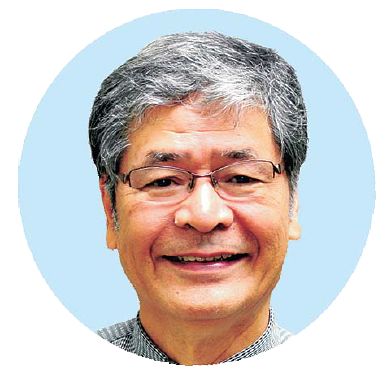 Michio Sakima, director of the Sakima Art Museum
Michio Sakima, director of the Sakima Art Museum
During the Ryukyu Dynasty, Okinawa kept peaceful relations with other East Asian countries under the Sakuho System. That history of friendship and trust lives on in the memory of the peoples of those Asian countries today. We will oppose the placing of military bases in Okinawa to prepare for war. The U.S. government should respect the History of Ryukyus. The United States is losing its power in East Asia while China’s is growing. We stand at a major turning point of history. Nevertheless, the Japanese government clings to its great dependency on the U.S. military. Today it is an anachronism to strengthen military alliances. The governments of Japan and the United States should use peaceful diplomacy to resolve disputes, not military power. They should learn about peace and diplomacy from the history of the Ryukyu Kingdom.
We will create a more peaceful Okinawa if we resolve the base issue
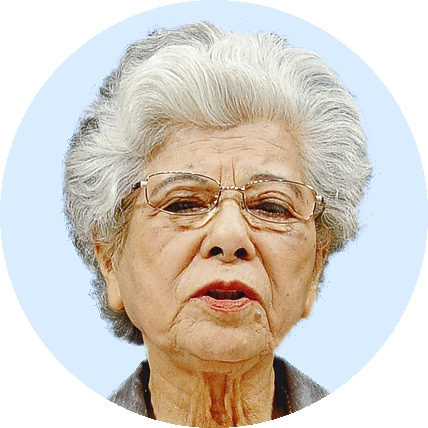 Keiko Taira, survivor of the Tsushima-maru, the ship sunk by a U.S. submarine in 1944
Keiko Taira, survivor of the Tsushima-maru, the ship sunk by a U.S. submarine in 1944
Since World War Two, Okinawa has been forced to bear the burden of U.S. bases for 70 years. However, we shall overcome no matter what. Governor Onaga says, “I will visit many times, if the situation calls for it.” So to support the governor’s action, I will not give up the fight for real democracy either. The Postwar period has not yet come to Okinawa. We waved off our friends, classmates and teachers just over 70 years ago. Now, they sleep at the bottom of the sea. However, the Japanese government has started to walk towards war. I am so angry that I want to run away to the other world. I would like to see a more peaceful world by resolving the base issue. Bases lead to war. I hope we will have no more bases. I would like many people to make use of the Henoko fund to tell the world about Okinawa.
Respect Okinawa’s right to self determination
 Satoshi Toyama, the chairman of Okinawa Hotel Association
Satoshi Toyama, the chairman of Okinawa Hotel Association
In the Japan-U.S. Summit meeting the Japanese government again said,” the construction of a new U.S. base in Henoko in Nago is the only solution.” Now is the time to claim Okinawa’s right to self-determination. As the U.S. is part of Japan’s Security Arrangements, I believe that Mr. Onaga will ask what should happen the U.S. bases and how the Japan-U.S. Security Treaty can give dignity to the people of Okinawa. Real dignity could be achieved by respecting Okinawa’s right to self- determination. I am proud as an Okinawan citizen that Mr.Onaga will convey our requests concerning Okinawa’s future directly to the U.S. people and their government.
US should listen to the will of the Okinawan people
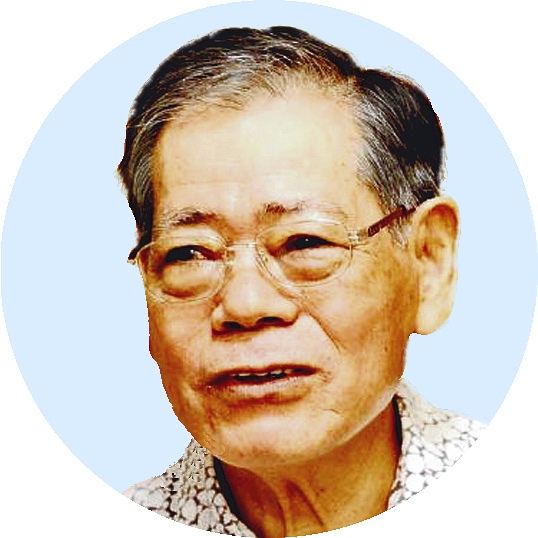 Sojun Taira, the chairperson of History Educationalist Conference of Okinawa
Sojun Taira, the chairperson of History Educationalist Conference of Okinawa
If the United States government is proud to call America the land of liberty and equality, it should listen to the will of the Okinawan people. No matter what you think about it, it is unnatural that 74 percent of U.S. military facilities in Japan are concentrated on these small islands, which comprise just 0.6 percent of Japan’s total land area. Despite the over-concentration of bases in Okinawa, the governments are now intent on building a new base here. We cannot accept it.
They say the construction plan is based on a bilateral agreement between the governments of Japan and the United States. They decided that agreement without listening to us. The majority of voters in Okinawa elected Onaga as the prefecture’s Governor by the large margin of 100,000 votes in the last year’s election. Considering this situation, the U.S. government should work to reduce its bases in Okinawa.
Previous Article:Editorial:While in the U.S. Gov. Onaga must show grit to block new base
Next Article:The commentaries on Gov. Onaga’s visit to the U.S.
[Similar Articles]
- Respect the will of the people; cancel the Henoko relocation
- UN special rapporteur meets Okinawa Governor: Okinawa a case of discrimination
- Governor Onaga to visit to US at end of January, making appeal to incoming administration for Henoko issue
- Governor Onaga tells foreign media: Tokyo’s Henoko policy is like US policy during occupation
- Governor Onaga says “The new base is discrimination,” and “America is responsible” in appeal to US Ambassador
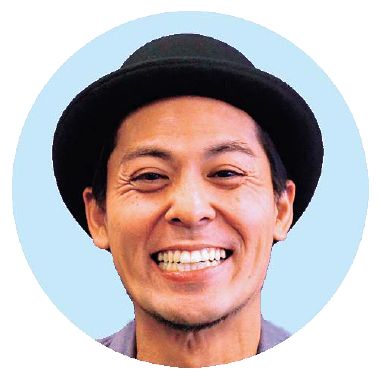
 Webcam(Kokusai Street)
Webcam(Kokusai Street)


